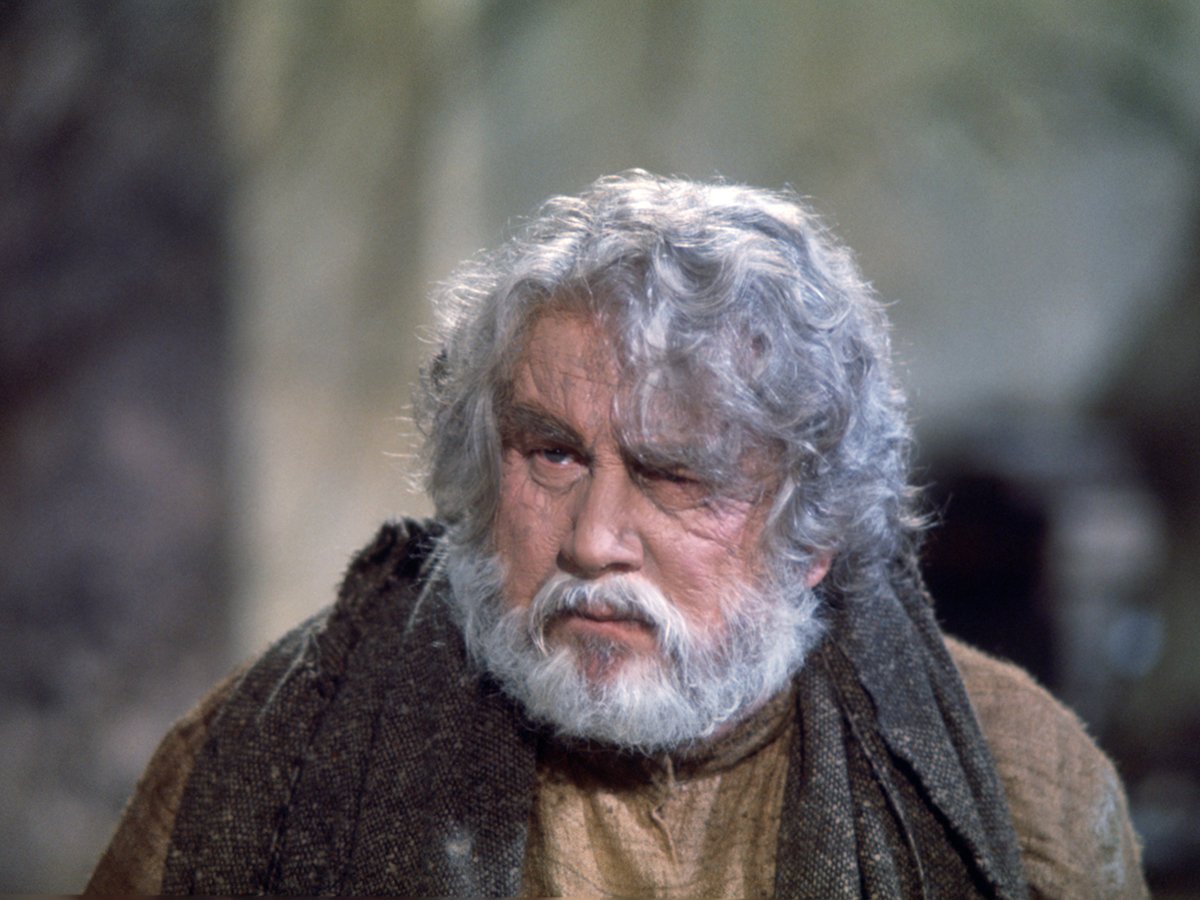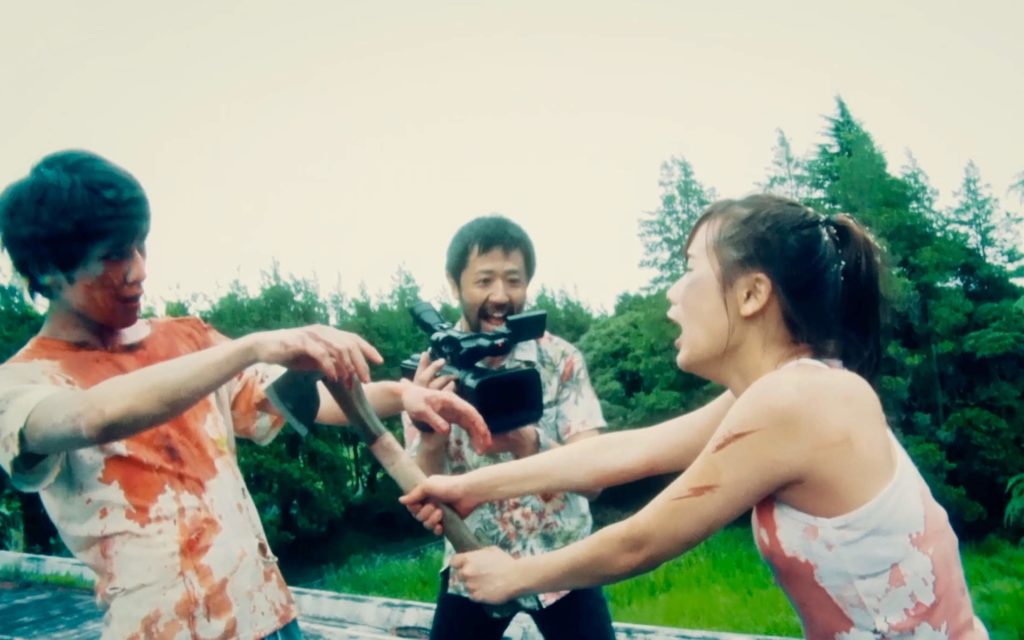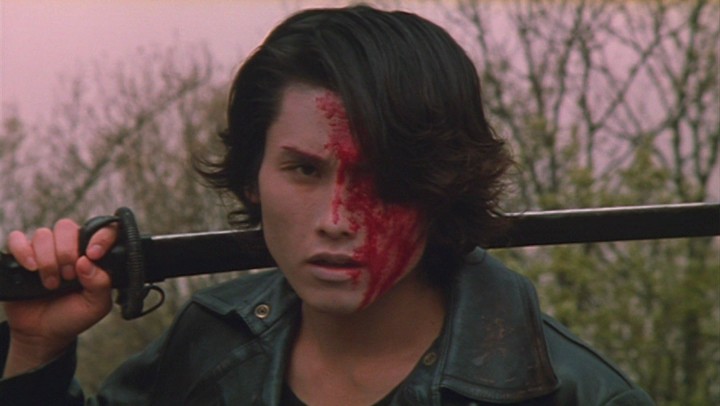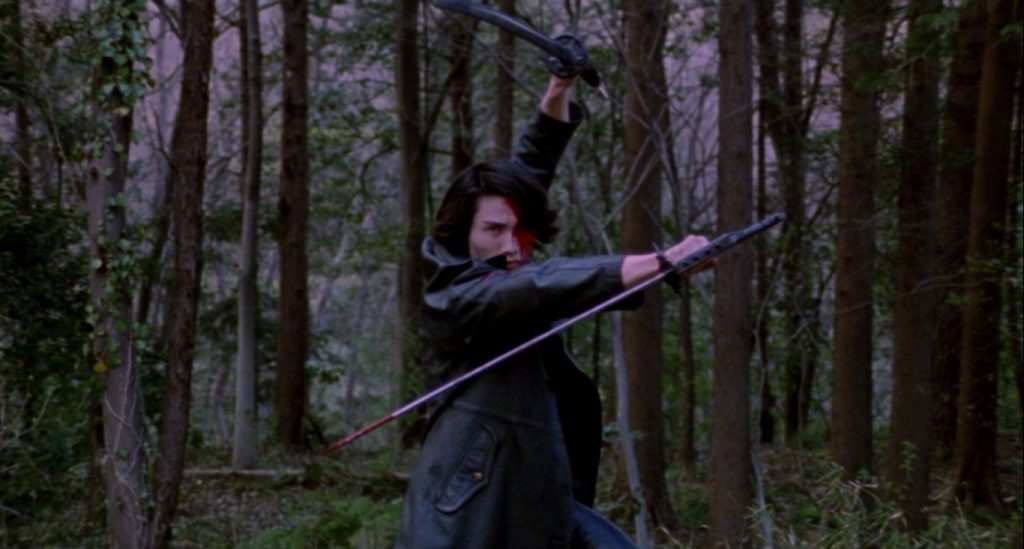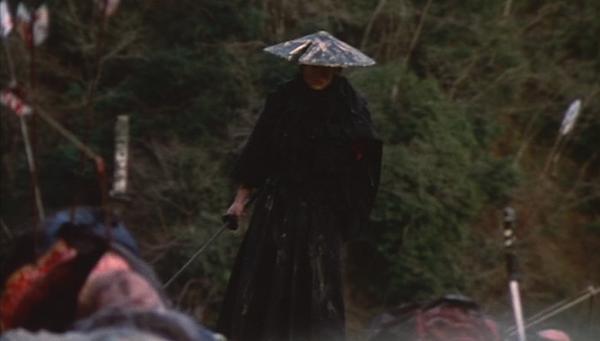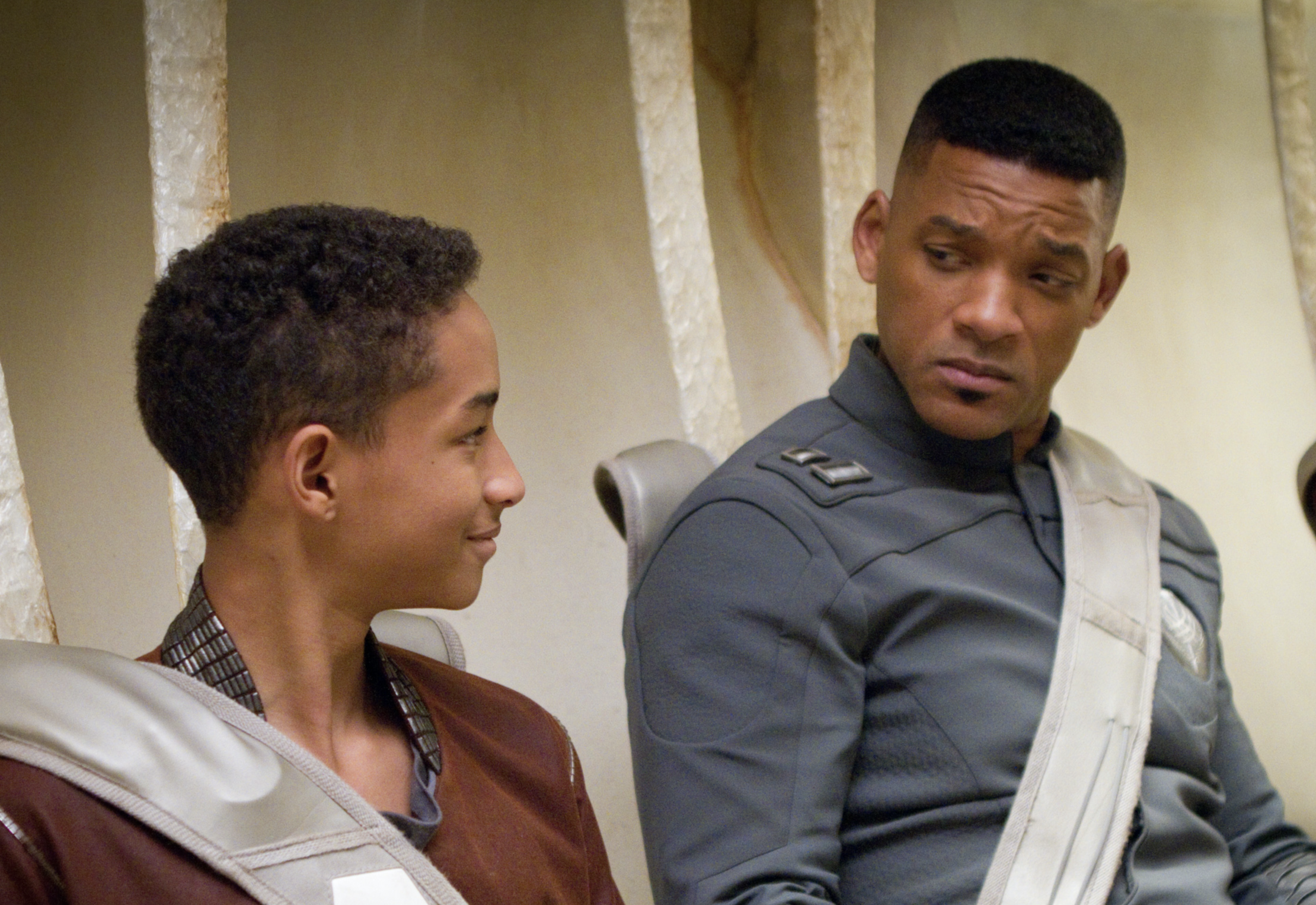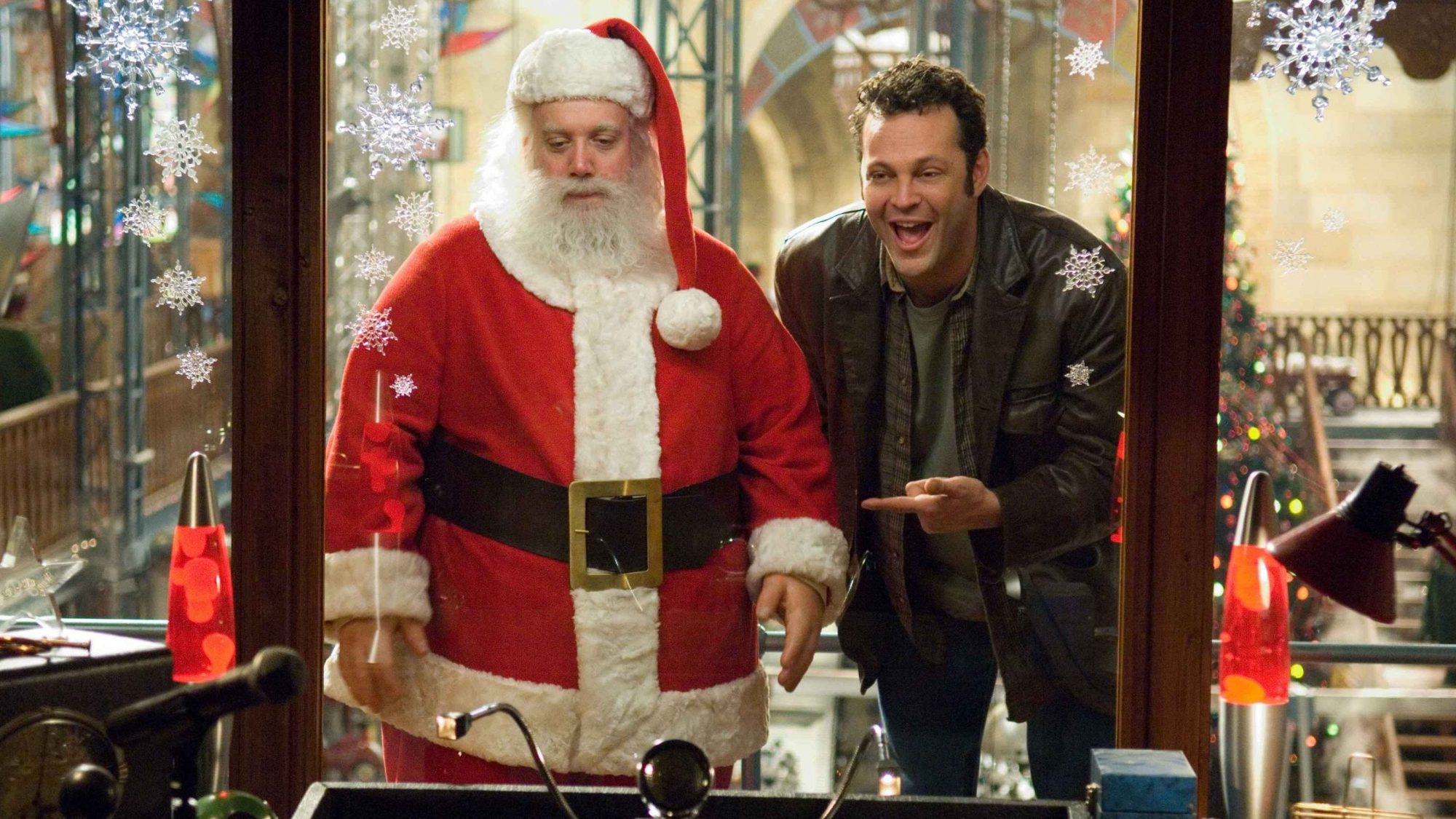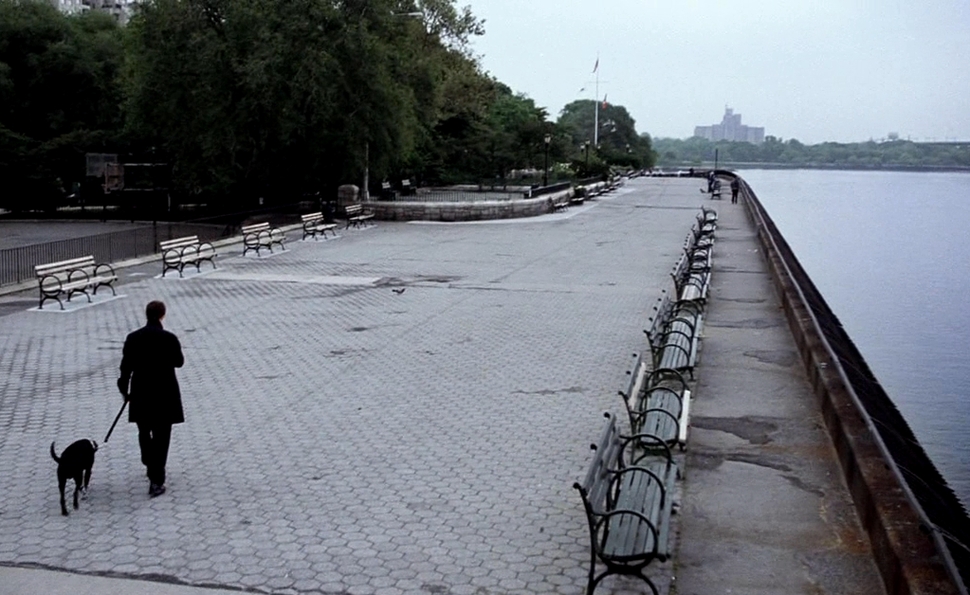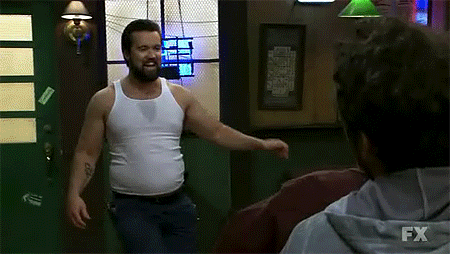It wasn’t easy, but we made it through 2021, folks! It was a tough year for all of us. Social distancing has done a lot to change our daily lives and habits. Everyone had their own way of coping, from taking up new hobbies to adopting puppies. Me? Well, I did adopt a puppy, too, but I also doubled-down on my love for movies more than ever before. Before I get to that, though, I will pay the puppy tax:
As for movies, well, I watched a lot. Probably too many. Some of this was just a result of having more free time on my hands, like all of us. Some of it was born out of desperate need to escape from reality, as I’m sure you can relate. Some of it was that movie clubs with friends became a surrogate for in-person social interaction. Whatever the reasons, I ended up watching a total of 736 movies in 2021.
If it makes that number seem less ludicrous, I did watch a lot of short films, with 299 (40.6%) of that total having runtimes shorter than the 90 minutes you might consider average feature-length. But, still, any way you slice it, I consumed a lot of content. Sometimes it was great, and sometimes it was terrible. There was an avant-garde Dracula musical, there was Hercules fighting space robots, there was a ramen Western, and whatever the hell this Czech fever dream is supposed to be.
Even if you were interested in hearing my thoughts on every single one (which you aren’t) and I were interested in writing my thoughts on every single one (which I’m not), the resulting blogcat would probably take longer for you to read than it would to actually just watch all of those movies for yourself. So I’m just going to summarize some of the highlights and lowlights from my year of movies. In case you are interested, the full list of every movie I watched in 2021 can be found here.
New Years Resolution
Before I start talking about some individual movies, I wanted to briefly reflect on some patterns in my movie watching habits, and make a resolution for this coming year (well, another resolution besides ‘watch fewer movies and live a fuller life’). You can skip down to the section heading “The Good” below if you just want to get straight to reading about specific movies.
I like to pride myself on having a varied and representationally-minded taste, but to what extent is this actually true? Let’s look at some numbers.
As mentioned above, I watched 736 movies this year. Caveats about the limitations of auteur theory aside, what sorts of filmmakers are represented among these 736? That is, to what extent did the movies I watch express a perspective different than that of a straight, white American male such as myself?
Let’s start with the “American” part. Of the 736 movies I watched, 357 (48.6%) were non-American productions. That’s pretty good! It’s about a coin-flip whether or not a movie I watch was Made in the U.S.A. or not. My top 5 non-USA countries on the year were:
- United Kingdom – 59 movies
- Japan – 52 movies
- France – 44 movies
- Germany – 41 movies
- Italy – 27 movies
If we exclude movies made by our nice cousin (i.e. Canada), our redneck cousin (i.e. Australia), our weird cousin (i.e. New Zealand), or our stuck-up uncle (i.e. England) – that is, other English language countries – we are left with 262 movies (35.6%). So that’s about 1/3 of movies made by a filmmaker from a country with a primary language other than English. That could be better, but I would venture to say it is still a better-than-average number. If we want to go entirely outside of the context of Western Civilization, we are left with only 96 movies (13.2%) from non-European/non-Western countries (more than half of which are from Japan, as you can see from the list above). Excluding European countries, and Japan, my next 5 most frequent were:
- Egypt – 7 movies
- Hong Kong – 7 movies (yes, yes, I know it’s not technically its own country, and I’m not even trying to make a political statement here, it’s just that the Hong Kong film scene is historically distinct enough from the mainland China scene to be worth disambiguating)
- Mexico – 5 movies
- South Korea – 4 movies
- Iran – 3 movies
These are pretty small numbers compared to the previous list, which definitely reflects a Western cultural bias on my part. Once outside of the Western context, I have generally prioritized breadth over depth. Here is a heat map of films I have watched by country this year:
As a sidebar, I gave every movie I watched this year a rating out of 10 (not that I put much stock into my own ratings). The top 5 highest rated countries (with more than 1 movie) were Iran (average of 9.6), Greece (9.6), Sweden (9.0), Australia (8.8), and the Czech Republic (8.8). The lowest rated country was Denmark (6.6). Come on, Denmark, get your shit together. Anyway…
Looking at just the breakdown by country though isn’t always useful. Countries aren’t homogenous, and national identity doesn’t necessarily define a filmmaker. What if we look at the ethnic backgrounds of some of the filmmakers whose work I experienced this year (not that this background defines them either)?
Well, as you might expect from the predominantly European bias shown above, there is an associated white bias in my filmmaking habits as well. Only 125 (17.0%) of the movies I watched were directed by non-white directors. About half of these (66) were of East Asian origin (meaning Japan, South Korea, China, Taiwan, Thailand, or the Philippines).
Finally, only 52 (7.1%) of the movies I watched were by female filmmakers (though to my credit my average ratings for movies by male and female directors are just about neck and neck, at 7.5 and 7.4, respectively), and only 38 (5.2%) were by LGBTQ+ filmmakers.
So, while I made some efforts this year to expand my horizons, there is still a very marked bias towards movies made by straight, white men of Western/European origin. So that brings me to my New Years Resolution for 2022: don’t do this! Make more of an effort to take in works made by people that aren’t similar to myself.
The Good
It’s tough to choose a favorite movie from the year, or even a top 5, or 10. When it comes down to it, there are just so many movies that I loved, and often for very different reasons. Sometimes I rewatch a movie that was a favorite when I was a kid, and I love it for the nostalgia as much as on its own merits (looking at you The Muppet Christmas Carol). Sometimes a movie is thought-provoking, like Eternity and a Day, or just dumb fun, like Five Element Ninjas. The five movies I want to briefly mention, here, are not necessarily the best, or my favorites, from the year, just the ones I thought were most interesting to recommend. In alphabetic order because why the heck not (click on each name to reveal a short write-up about each one, or just keep scrolling if you are going to be rude about it):
Chan Is Missing (directed by Wayne Wang, 1982) This movie is notable from a historical standpoint as being the first feature film by an Asian-American director to get widespread theatrical distribution. It is also one of the first American movies (after 1961’s Flower Drum Song) to have a majority Asian cast, bucking the yellowface trend that had been popular in American movies, such as the Fu Manchu and Charlie Chan franchises, for most of the 20th century. In fact, part of the genesis for the movie was the backlash among the San Francisco Chinese-American community against the filming of 1981’s Charlie Chan and the Curse of the Dragon Queen, starring the notably not-Chinese Peter Ustinov as the titular Chinese detective.
This movie is notable from a historical standpoint as being the first feature film by an Asian-American director to get widespread theatrical distribution. It is also one of the first American movies (after 1961’s Flower Drum Song) to have a majority Asian cast, bucking the yellowface trend that had been popular in American movies, such as the Fu Manchu and Charlie Chan franchises, for most of the 20th century. In fact, part of the genesis for the movie was the backlash among the San Francisco Chinese-American community against the filming of 1981’s Charlie Chan and the Curse of the Dragon Queen, starring the notably not-Chinese Peter Ustinov as the titular Chinese detective.
Chan Is Missing directly engages with the legacy of Charlie Chan and the depiction of people of Asian heritage in American media and culture. It challenges the idea that “Asian-American” is a homogenous identity and interrogates the degree to which any individual identity is tied up in such cultural signifiers. It depicts San Francisco’s Chinatown in the 1980s as a diverse and vibrant place filled with all sorts of different people, all living different “Asian-American” experiences. It could be described as a neo-noir in the way it uses and deconstructs the conventions of that genre. From a technical perspective, the sound design especially is terrific.
One Cut of the Dead (directed by Shinichiro Ueda, 2017)
There is a lot I want to say about this movie, but it’s also a movie best experienced by going in as cold as possible. So in case any of you decide on my recommendation to watch it, do so without reading any further! Trust me, it’s worth letting it surprise you.
Despite the name, this isn’t really a zombie horror movie, it’s a pretty heartwarming and sincere comedy and love letter to filmmaking as a creative impulse. The first 45 minutes of it play out as a silly, low-budget zombie movie all shot in a single continuous take. It’s full of these truly inexplicable moments of goofiness that sucker you into thinking it’s a “good bad” movie. The second half, though, is where the rug is pulled out from under you as a viewer, and you get essentially a workplace comedy about the making of the zombie movie you just watched. Every little “bad” moment from the first 45 minutes ends up being the set-up to a punchline as the actors and crew try desperately to salvage the movie as everything goes wrong with the production. The writing is incredibly smart and the ending is incredibly wholesome.
One Cut of the Dead was made on a microbudget with a cast of unknown actors. It would go on to make box office history by making over 1,000 times its initial budget, receiving international acclaim. It’s one of the greatest success stories in modern independent cinema.
Taste of Cherry (directed by Abbas Kiarostami, 1997)
 Like One Cut of the Dead, this is a movie that will impact you most profoundly if you go in knowing as little about it as possible. It is also a movie that is very difficult to describe.
Like One Cut of the Dead, this is a movie that will impact you most profoundly if you go in knowing as little about it as possible. It is also a movie that is very difficult to describe.
Most of the runtime of this movie consists of people talking as they drive around the outskirts of Tehran in a car. There is a fable-like structure as the protagonist, Mr. Badii, picks up different passengers and has conversations about life and death with them, each one loosely representing a different set of ideas (a soldier, a seminarian, etc.). But it is overly simplistic to paint the movie this way. It is one of the most achingly human and emotionally nuanced movies I have ever seen, and the exact details of the plot aren’t really important for understanding why it is so powerful.
It is a movie about liminal spaces. About the how “truth” is slippery and uncertain, our ability to achieve it constrained irrevocably by historical and cultural forces beyond our control. More than that, it is a film about the fundamental inadequacy of film, and narrative art more generally, in truly capturing the essence of the human experience.
Versus (directed by Ryûhei Kitamura, 2000)
This isn’t a movie about art. Or the nature of the human experience. Or any of that high-falutin’ nonsense. This movie is just fucking fun. Just read this plot description from Wikipedia: “The film is set somewhere in the deep forest of Japan, known as the Forest of Resurrection, where an escaped convict simply referred to as Prisoner KSC2-303 and a gang of Yakuza battle a horde of zombies while at the same time dealing with their sinister leader who wishes to open the forest’s portal of darkness.” It’s an incoherent cocktail of some of the most fun elements from Japanese film culture. It’s got time traveling samurai, immortal yakuza sorcerers, zombies, and lots of sword and gun violence. The only thing missing is a kaiju.
The Wolf House (directed by Cristobal León & Joaquín Cociña, 2018)
One of the most breathtaking animated features ever made. It is a complete technical marvel, accomplishing sophisticated camera movements and lighting tricks combined with stop motion in a way that has never been done before. The animation is so sophisticated that it puts even the great works made by stop motion luminaries like the Brothers Quay and Jan Švankmajer to shame. Here’s a brief sample:
The narrative is a dark, esoteric fairy tale, sublimating fears drawn from one of the darkest chapters in Chilean history, the Colonia Dignidad (read about it on your own time if you want to be horrified). It’s mesmerizingly creepy.
The Bad
It’s sometimes harder to decide what I dislike more than to decide what I like when it comes to movies. I am, after all, a well-known aficionado of terrible SyFy original movies (as my previous blogcats on that topic evince, like this one or this one or this one). There are terrible movies that I will likely watch another twenty times in my life, like say Samurai Cop, just as there are plenty of “good” movies that I don’t even remotely enjoy (Paterson for example). Sometimes I can articulate why I dislike something, sometimes it’s less tangible. The first three movies I list below aren’t all that ambiguous (all make frequent appearances on many “worst movies” lists).
The final two are more difficult to justify, since I watched other movies this year that are undeniably worse and it’s not even close (looking at you, Virus Shark). I’m not including them for the sake of being contrarian, but only because I have more coherent (and I hope interesting) thoughts on why I disliked them (or at least did not enjoy the experience of watching them). Besides, there are only so many different ways that I can write “Hey, this movie everyone already agrees is bad is actually really bad guys!” I’ll save my 5,000 word review of Virus Shark for another day.
After Earth (directed by M. Night Shyamalan, 2013)Pretty much everyone agrees this movie is awful. But I have a tendency to really enjoy off-beat sci-fi movies that don’t quite resonate with general audiences. Even I struggled with this, though. On paper this actually feels like a movie I would really enjoy … I mean, Will Smith’s character is named Cypher Raige, and he speaks in a horribly inconsistent British accent. But it’s just so boring. I don’t even have all that much to say about it, it’s just boring. Nothing interesting happens at any point.
Although it does contain the following dialogue exchange between Will and Jaden:
“I’m reading Moby Dick.” “Your mother told me. That’s great” (both stare straight forward in silence for ten seconds and then change the subject)
So that’s a plus.
Fred Claus (directed by David Dobkin, 2007)
Christmas movies always get graded on a curve. It’s a saccharine formula but it works for the season, and I generally have no problem with it. There are a lot of dumb, corny Christmas movies I genuinely enjoy. Some of which you could argue are actually worse made than Fred Claus.
But something about this movie is just so mean spirited. I would estimate without any exaggeration that a full third of the dialogue in this movie consists of fat jokes about Santa. Every scene he is in, someone tells him to lay off the cookies. It’s not profane enough to be entertaining based on shock value, or strictly repetitive enough to become funny again in a weird Adult Swim post-irony kind of way. It’s just a string of uninspired fat jokes padding out the script. It doesn’t help that Kevin Spacey is in a lot of these scenes, too. Another third is Vince Vaughn literally stalking and gaslighting Rachel Weisz, who somehow got tricked into being in this movie. The rest is about Vine Vaughn basically teaching the chief elf at the North Pole how to be his wingman in Wedding Crashers.
Saving Christmas (directed by Darren Doane, 2014)
Between this and Fred Claus, I’ve come to the conclusion that directors with alliterative “D” names should not be allowed to make Christmas movies.
In all seriousness, this movie is essentially Triumph of the Will for the most extreme wing of “prosperity gospel” evangelicalism. But say what you will about Leni Riefenstahl, at least she had some talent and a legitimate aesthetic vision. This movie is ugly, both aesthetically and morally.
I could write an entire blogcat breaking down how horrific the ideology at the heart of this really is (and maybe I will one day). But really all you need to know is that the moral of the movie is “capitalism itself is God”. When faced with questions about the role of faith in modern materialist Christmas, this movie doubles down on materialism. It features such bizarre contortions as “Christmas trees represent the crucifix, and the ornaments are Jesus, so when you decorate the tree you are crucifying Jesus” and “Christmas presents under the tree represent the skyline of Jerusalem”. There’s also a scene where St. Nicholas beats up a person of color in a bar while Kirk Cameron’s narration talks about how you shouldn’t put up with political correctness. And it ends with the whitest rap/break-dance sequence ever made.
25th Hour (directed by Spike Lee, 2002)
This is a more controversial pick than the above, being a movie that Roger Ebert includes on his “Great Movies” lists (and many other critics include on best movies of the 2000s lists). Despite my dislike for it, I still recognize that it is in a qualitatively different category than Fred Claus. This isn’t a movie that inherently lacks value. It features some great acting performances and does serve as a sincere portrait of post-9/11 New York City. Even if I don’t personally like the aesthetic choices involved, I at least have to grant that Spike Lee came into this with a coherent vision, which is more than I can say for any of the previously entries on this list.
That said, I do strongly dislike this movie. I find the whole thing to be cloying and trite. There are points in this that would work better as a satire of a certain type of New York personality, but the whole thing is too sincere to be read that way. Flashbacks aside the entire movie takes place on Edward Norton’s character’s last day before going to prison; therefore, in the logic of the movie, every single person he talks to needs to talk about prison rape. I’m hardly even exaggerating, almost every single conversation in this movie involves either someone telling Edward Norton he is going to get raped in prison or Edward Norton telling someone else that he is going to get raped in prison. I’m not saying that it’s a taboo topic that shouldn’t be mentioned, or that an exploration of anxiety and masculinity shouldn’t broach the topic at all, but that’s more or less the only example of how going to prison can be scary that the movie seems to be able to think of. Instead of exploring that sense of fear and loss in any intimate or personal way, it just says, “Don’t drop the soap, bro.” ]
Most damningly, I think, is that despite being directed by Spike Lee, the world-view of the movie is driven predominantly by that of its writer, David Benioff (of Game of Thrones and “Themes are for eight-grade book reports” fame). Everything about the perspective of this movie feels incredibly white, in a way that I am surprised a filmmaker as talented and polemic as Lee couldn’t find a coherent way to subvert.
And the less said about the gender dynamics of this movie the better.
Promising Young Woman (directed by Emerald Fennell, 2020)
This, too, is a controversial pick, seeing as this movie won Best Original Screenplay and was nominated for Best Picture, Best Director, Best Actress, and Best Film Editing at last year’s Academy Awards. As with 25th Hour, I am not trying to argue that this is a Fred Claus; but, too, I don’t find it as bland and sophomoric as 25th Hour. Carey Mulligan truly is fantastic, Emerald Fennell has a well-defined visual style and makes some unique and interesting aesthetic decisions (that feel far more polished than you would expect from a directorial debut), and I rather like the score. As I said in the intro to this little section, I don’t think this movie is “bad”, per se. I just did not enjoy the experience of watching it.
I honestly think at least part (not all) of the reason for its rapturous reception over Hollywood is a penitence for Harvey Weinstein. I don’t mean to say that it’s awards campaign was some sort of premeditated or cynical PR stunt, mind you, or that the adoration for it isn’t sincerely felt. But rather that this movie addresses the issues of sexual assault and rape in about the safest, most milquetoast Liberal way possible. It doesn’t make an effort to challenge the way Hollywood and other power structures helped enable the behavior of Weinstein and others like him, instead it has a neat tidy ending where the police swoop in and catch the bad guys and the problem is solved. It provides absolution without self-reflection, broaching difficult topics just enough to be edgy but not quite enough to be uncomfortable.
There are other things I would say, but I also feel that it is not my place as a male to pass these judgments on the perspective of a female filmmaker when it comes to a topic as important as sexual assault. Instead, I would like to quote a non-binary film reviewer that I follow, who already expressed it better than I could:
“We are more than the things that happen to us. Watching a woman inflict mental trauma onto other women by making them think they, or their teenage daughter, were raped is not sweet vengeance. Ignoring the pleas of your dead best friend’s mother to move on and instead you use said dead best friend’s name as your call to arms and justification for your actions is not sweet vengeance. It all works for the argument that we are watching a deeply traumatized women try and justify her own actions instead of healing but to tout these actions around as a thrilling expression of female vengeance feels nauseating and so deeply counterproductive to the ideas of intersectional feminism. Even if we see an offering of respite through clarification for those women who are being convinced there has been a rape, that doesn’t negate the great deal of harm even remotely incorporating that narrative can cause … Martyrdom does not a feminist film make.”
“Unhinged”
I just want to take a moment to quickly shout out the 2020 Russell Crowe vehicle, Unhinged. Mostly, it’s because I wanted to think of a “The Good, the Bad and the Ugly” themed titled for this blogcat and this was the best I could do. But also, I truly do love this movie. Not many people agree with me (though Quentin Tarantino said on a podcast he enjoyed it, for what that’s worth). But I had an absolute blast watching it, and enjoyed it more than just about any other film this year. It’s not really worth discussing, though, outside of the fact that Russell Crowe looks like Fat Mac from season 7 of It’s Always Sunny in Philadelphia.
New Releases
Here’s a very, very quick and mostly half-assed ranking of the 2021 releases that I saw this year. Unfortunately I didn’t see very many new releases, and never got a chance to see some of the ones I was most excited about (like Memoria or The Tragedy of Macbeth) due to my reluctance to go to movie theaters, so most of these are ones that were available immediately on streaming.
- The Green Knight – Merry Christmas to all, and to all a good knight.
- Dune – What can I say, I’m a sucker for bombastic Golden Age sci-fi maximalism. Also, “DESERT POWER!”
- Matrix Resurrections – A surprisingly incisive critique of the Disneyfication of pop culture that also features a flying manta ray/bird robot for some reason.
- Bats: The Awakening – Top 5 spot was a lock once I got to the scene where the mutant bat monster blows up a dude’s head using echolocation.
- Shangri-La – I don’t know what it means about the state of art in the era of late-stage capitalism that an achingly beautiful and intimate short film about love and identity is also technically an ad for a high end fashion brand, but here we are.
- Halloween Kills – “EVIL DIES TONIGHT!”
- Venom: Let There Be Carnage – Honestly only have this ranked so high due to residual affection for the first Venom, so all this really proves is that this ranking is an exercise in futility.
- Nobody – Better Call Saul Breaks Bad.
- Godzilla vs Kong – I mean, it’s no King Kong vs. Godzilla, but anytime a movie features a giant monkey punching a giant lizard it at least piques my interest.
- Mortal Kombat – There’s a scene in this movie where Raiden admits that “the gods” could easily put a stop to the villain’s evil plan but honestly just don’t feel like doing it.
- Zach Snyder’s Justice League – I’m honestly shocked I have it this high, too, but 2021’s been a weird year.
- Escape Room: Tournament of Champions – Someone literally says “What is this, some kind of tournament of champions” like 15 minutes into this movie.
- The Ice Road – “Liam Neeson in … Taken On Ice!”
- Judas and the Black Messiah – You know the white family from Get Out? This is their favorite movie.
- King Richard – Movies like this have their audience, and that’s fine, I just have no patience for bland hagiography.
- Virus Shark – Well, everyone knows that sharks didn’t cause Covid-19. What this movie presupposes is … maybe they did?
- Werewolves Within – A horror-comedy for people who think Alec Baldwin’s Trump impersonation on SNL is Swiftian political satire.
- Chaos Walking – The only redeeming feature of this movie is that Mads Mikkelsen lives in a pink shipping container and dresses like this:
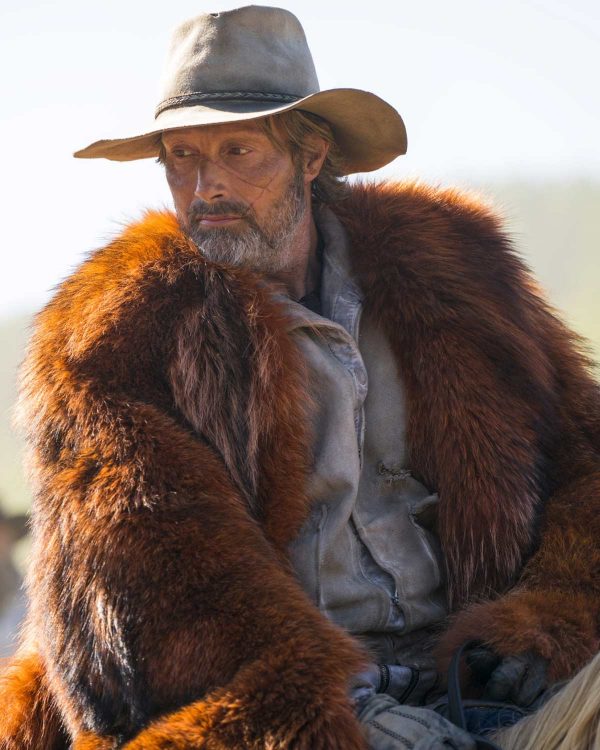
Happy New Year, everyone! Now if you excuse me I’m going to go and try to not watch any movies for a while.



